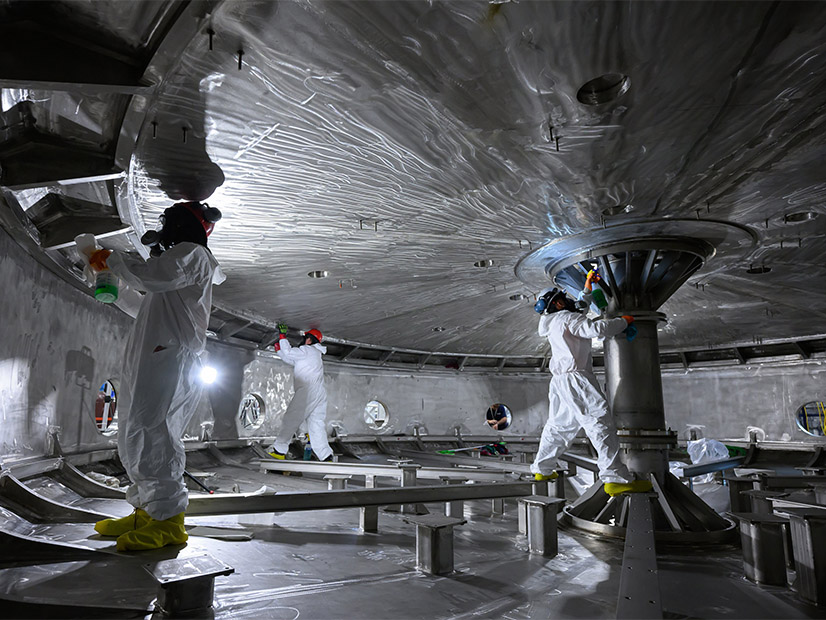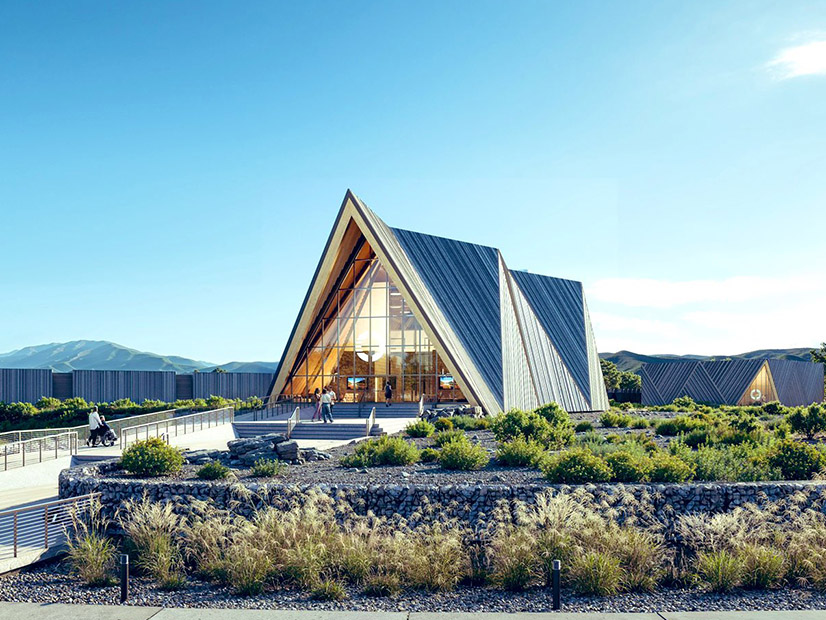
Two companies developing advanced nuclear technology recently made landmark announcements about their plans.
Advanced nuclear fission reactor designer Oklo and data center developer Switch said Dec. 18 they had struck a 12-GW power agreement through 2044, saying it was one of the largest corporate clean power agreements ever signed.
Commonwealth Fusion Systems, which calls itself the largest private-sector company advancing nuclear fusion technology, announced Dec. 17 it would build the first grid-scale commercial fusion plant in the early 2030s.
Before these plans become reality, this week’s announcements must of course be followed by successful technology development, regulatory approval, siting and permitting processes, favorable public opinion, financing and other milestones.
Small modular reactors like those Oklo is developing are widely considered to be several years from market-ready, and the running joke about commercially viable nuclear fusion is that it has been only 20 years away for the last half-century.
But both companies claim a robust list of achievements as they continue on the path to workable and scalable solutions.
The Oklo-Switch master power agreement is a nonbinding strategic partnership, a framework for collaboration that is expected to yield binding agreements as project milestones are reached. It calls for Oklo to develop and operate power plants to feed Switch facilities across the U.S. through a series of power purchase agreements.
The master agreement fits with Oklo’s business model of selling power rather than selling power plants. It could accelerate Oklo’s early deployments and position it to scale up to meet the anticipated growth of demand.
The agreement also serves the priorities of Switch, which says its mission is to build sustainable infrastructure while bolstering the voluntary market for clean and renewable energy. Since January 2016, it has been powering all its data centers with 100% renewable power — nearly 1 billion kWh of it per year.
Commonwealth’s plan includes a nonfinancial collaboration with Dominion Energy to provide development and technical expertise, as well as leasing rights to a proposed site near Richmond, Va., that is owned by the utility.
Commonwealth said it conducted a global search for a location to site its first commercial fusion plant. The company plans to independently finance, build, own and operate the facility, which it calls ARC and is expected to be rated about 400 MW.
If it comes together as planned, ARC is expected to draw significant attention, capital investment and workforce development to that part of Virginia.
“This is an historic moment for Virginia and the world at large,” Gov. Glenn Youngkin (R) said in a news release. “Commonwealth Fusion Systems is not just building a facility; they are pioneering groundbreaking innovation to generate clean, reliable, safe power, and it’s happening right here in Virginia. We are proud to be home to this pursuit to change the future of energy and power.”
Both Oklo and Commonwealth have attracted attention among the crowded fields in which SMRs and nuclear fusion are being developed.
Oklo is advancing on multiple fronts with its design of advanced plants that run on nuclear waste. Earlier in 2024, it announced two agreements to supply a combined 850 MW of power to data centers, plus a letter of intent to supply 50 MW to a Permian Basin oil and gas producer.
Commonwealth is developing SPARC, the fusion demonstration machine that it expects to first produce plasma in 2026. Soon after, it expects SPARC to produce net fusion energy as the first commercially relevant design to generate more power than it consumes.




